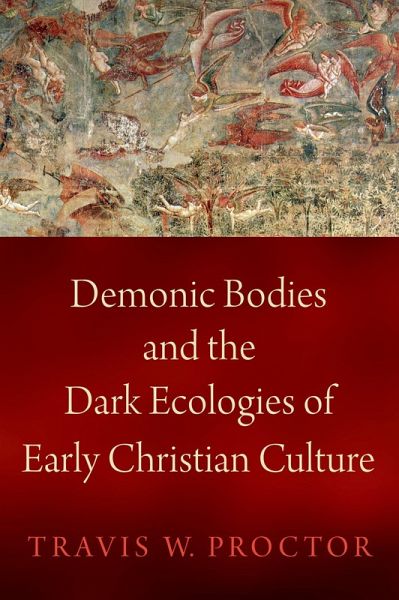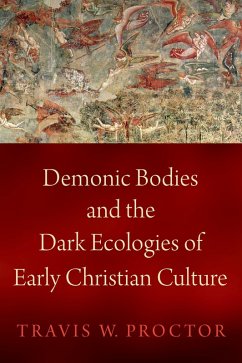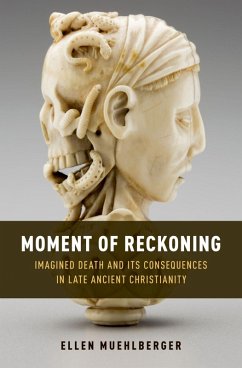
Demonic Bodies and the Dark Ecologies of Early Christian Culture (eBook, PDF)
Versandkostenfrei!
Sofort per Download lieferbar
39,95 €
inkl. MwSt.
Weitere Ausgaben:

PAYBACK Punkte
20 °P sammeln!
Drawing insights from gender studies and the environmental humanities, Demonic Bodies and the Dark Ecologies of Early Christian Culture analyzes how ancient Christians constructed the Christian body through its relations to demonic adversaries. Through case studies of New Testament texts, Gnostic treatises, and early Christian church fathers (e.g., Ignatius of Antioch, Clement of Alexandria, and Tertullian of Carthage), Travis W. Proctor notes that early followers of Jesus construed the demonic body in diverse and sometimes contradictory ways, as both embodied and bodiless, fattened and ethere...
Drawing insights from gender studies and the environmental humanities, Demonic Bodies and the Dark Ecologies of Early Christian Culture analyzes how ancient Christians constructed the Christian body through its relations to demonic adversaries. Through case studies of New Testament texts, Gnostic treatises, and early Christian church fathers (e.g., Ignatius of Antioch, Clement of Alexandria, and Tertullian of Carthage), Travis W. Proctor notes that early followers of Jesus construed the demonic body in diverse and sometimes contradictory ways, as both embodied and bodiless, fattened and ethereal, heavenly and earthbound. Across this diversity of portrayals, however, demons consistently functioned as personifications of deviant bodily practices such as magical rituals, immoral sexual acts, gluttony, and pagan religious practices. This demonization served an exclusionary function whereby Christian writers marginalized fringe Christian groups by linking their ritual activities to demonic modes of (dis)embodiment. The tandem construction of demonic and human corporeality demonstrates how Christian authors constructed the bodies that inhabited their cosmos--human, demon, and otherwise--as part of overlapping networks or ecosystems of humanity and nonhumanity. Through this approach, Proctor provides not only a more accurate representation of the bodies of ancient Christians, but also new resources for reimagining the enlivened ecosystems that surround and intersect with our modern ideas of self.
Dieser Download kann aus rechtlichen Gründen nur mit Rechnungsadresse in A, B, BG, CY, CZ, D, DK, EW, E, FIN, F, GR, HR, H, IRL, I, LT, L, LR, M, NL, PL, P, R, S, SLO, SK ausgeliefert werden.













